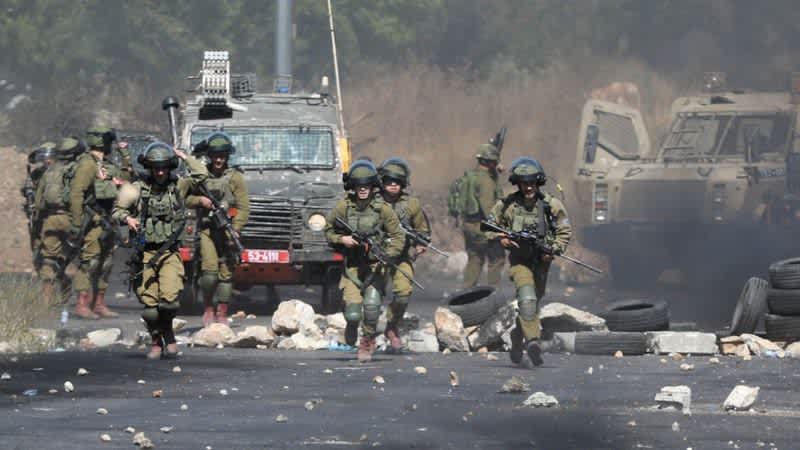The conflict between Israel and Palestine has reached a critical new stage in recent weeks. With more than 44,550 Palestinians killed since the start of the war, the humanitarian situation in the Gaza Strip has sparked a wave of international condemnation and urgent calls for a ceasefire.
In the midst of this escalation, Israeli Prime Minister Benjamin Netanyahu faces a trial on charges of bribery, fraud, and breach of trust, adding a new layer of uncertainty to Israeli politics. Meanwhile, the international community, with the participation of Qatar, Egypt, and the United States, is working to broker a ceasefire before Donald Trump’s presidential inauguration in January 2025.
Amnesty International Investigation: Genocide in Gaza?
One of the most shocking accusations comes from Amnesty International (AI), which presented a report at The Hague accusing Israel of committing genocide against the Palestinian population in Gaza. The investigation, which lasted 14 months and included interviews, medical reports, and satellite imagery, concluded that Israel had committed acts that violate the Convention on the Prevention and Punishment of the Crime of Genocide.
The report highlights the mass killing of civilians, the forced displacement of 90% of Gaza’s population, as well as the destruction of hospitals, clinics, and other essential services. According to Amnesty International, Israel’s actions include:
- Murder of civilians.
- Inflicting severe physical and mental harm.
- Subjecting the Palestinian population to living conditions designed to bring about its destruction.
Amnesty has called on the United Nations International Court of Justice and the International Criminal Court (ICC) to investigate, labeling Israel’s actions as genocide. Israel has strongly denied the allegations, arguing that its actions are solely aimed at military targets linked to Hamas, the militant group that has controlled Gaza since 2007. (elpais.com)

Netanyahu’s Trial: Bribery, Fraud, and Abuse of Power
Amid the international crisis, Israeli Prime Minister Benjamin Netanyahu appeared before the Tel Aviv District Court to face charges of bribery, fraud, and breach of trust. The allegations date back to events that occurred between 2007 and 2019, during which Netanyahu allegedly granted political favors to media tycoons in exchange for favorable media coverage and received luxury gifts from wealthy businesspeople.
Netanyahu denies the charges, calling them a “political witch hunt.” His court appearances will take place three times a week, with the aim of resolving the case in the coming months. Outside the court, demonstrators were split into two groups: supporters of Netanyahu and opponents demanding his resignation. The case has further polarized Israeli politics, especially after Netanyahu’s attempts to limit the independence of the judiciary. (elpais.com)
International Peace Efforts: The Role of Qatar, Egypt, and the United States
Faced with growing international pressure, Qatar has resumed its role as a mediator to secure a humanitarian ceasefire in Gaza. The negotiations, involving Qatar, Egypt, the United States, and Israel, aim to reach a truce before Donald Trump’s presidential inauguration in January 2025.
The Qatari Foreign Minister, Mohamed bin Abderrahmán, announced that Qatar had previously suspended its role as a mediator but now sees a renewed opportunity to restart peace talks. However, the militant group Hamas has not participated in the recent rounds of dialogue, raising doubts about the effectiveness of any agreement reached.
Egypt, on the other hand, has proposed a 60-day truce and the reopening of the Rafah border crossing, Gaza’s only entry and exit point not controlled by Israel. Talks between the Palestinian factions Hamas and Fatah in Cairo seek to achieve internal reconciliation and establish a joint administration for the Gaza Strip. (elcomercio.pe)
The Humanitarian Crisis in Gaza: Alarming Figures
The humanitarian impact on Gaza remains devastating. According to recent figures, the conflict has resulted in:
- 44,550 Palestinian deaths since the start of the war.
- Forced displacement of 90% of Gaza’s population.
- Destruction of hospitals, clinics, and essential basic services.
Access to food, drinking water, and medicine is critical. The lack of fuel has forced hospitals to reduce their operations and has left thousands of people without electricity. UN shelters are at maximum capacity, with thousands of families living in precarious conditions.
Israeli airstrikes have destroyed a significant portion of Gaza’s infrastructure, and the lack of adequate humanitarian assistance has worsened the situation. This scenario has prompted international leaders to issue urgent calls for a ceasefire to allow for the entry of humanitarian aid.
International Reactions and the Future of the Conflict
The conflict between Israel and Palestine has triggered global condemnation. International organizations such as the UN, the Red Cross, and Amnesty International have called for the entry of humanitarian aid into Gaza and for investigations into possible war crimes.
Meanwhile, the role of the United States in the peace talks is critical. With the imminent arrival of Donald Trump to the presidency in January 2025, there is speculation that U.S. foreign policy could influence the course of the war. Qatar and Egypt are working with the Trump administration to reach a ceasefire before his inauguration, a move that could alleviate the humanitarian crisis.
Conclusion
The Israel-Palestine conflict has escalated with a series of genocide accusations, humanitarian crises, and international peace efforts. The appearance of Benjamin Netanyahu in court adds a new dimension to Israel’s political crisis, while mediation efforts led by Qatar, Egypt, and the United States seek to prevent a humanitarian catastrophe.
With more than 44,550 Palestinians killed and a Gaza Strip on the brink of collapse, the world watches with concern as the conflict unfolds. The coming weeks will be crucial in determining whether a ceasefire can be achieved or if the escalation of violence will continue. The international community demands justice, peace, and an urgent humanitarian solution.